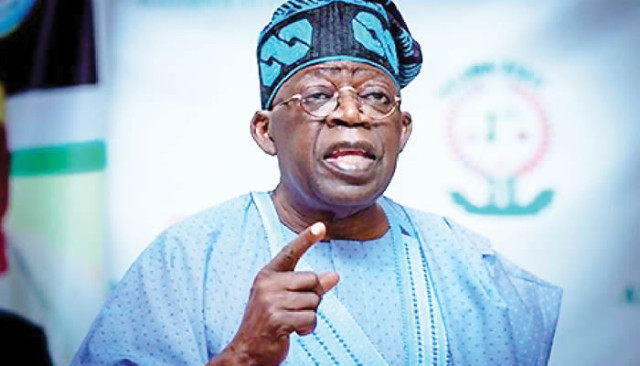President Bola Tinubu has advocated for a more equitable global framework regarding climate action, finance, and healthcare, urging BRICS nations to spearhead initiatives for inclusive development and fairness for developing economies.
While addressing the 17th BRICS Summit in Rio de Janeiro, Brazil, Tinubu highlighted Nigeria’s proactive measures to enhance renewable energy, address environmental degradation, and achieve universal health coverage, all while aligning with the international agenda for sustainable development.
He emphasized Nigeria's commitment to sustainable development and global cooperation, stating that the country is integrating climate action, advocating for nature-based solutions, bolstering urban resilience, and synchronizing its national priorities with the global renewal framework to ensure inclusive growth and environmental safety.
The Special Adviser to the President on Information and Strategy, Bayo Onanuga, shared this information in a statement released early Monday.
Tinubu remarked, “We are making significant strides in promoting renewable energy adoption, mainstreaming climate action, supporting nature-based solutions, enhancing urban resilience, encouraging South-South cooperation, aligning with the global renewal framework, and providing universal health coverage for everyone.”
He called for a reassessment of the current global governance framework as well as financial and healthcare systems, advocating for greater equity and inclusion for low-income and emerging nations, particularly in Africa.
He pointed out that issues such as environmental degradation, the climate emergency, and healthcare disparities warrant increased focus, as they hinder growth and progress. Invited to the summit by Brazil’s President Luiz Inacio Lula Da Silva, Tinubu expressed Nigeria’s endorsement of the BRICS stance on prioritizing cooperative, fair, and just global development. Nigeria became the ninth partner of BRICS in January 2025, joining other countries like Belarus, Bolivia, and Cuba.
At the Brazil summit, Tinubu stated, “Nigeria aligns with the discussions and developments within BRICS.”
He highlighted financial restructuring and the reassessment of the global framework as pressing matters.
He remarked that environmental degradation, the climate crisis, and global healthcare disparities are critical issues affecting Africa.
Tinubu noted, “Africa contributes minimally to global emissions yet bears the brunt of the consequences.”
He stressed the necessity of a new equitable path built on fairness, sustainable technology transfer, and accessible financing to ensure emerging economies fully benefit from various initiatives.
He elaborated on Nigeria's initiatives like the African Carbon Market Initiative and the Great Green Wall, anticipating that COP-30 will reinforce their commitment to achieving a healthy global environment.
Tinubu emphasized Nigeria’s strong belief in South-South cooperation, asserting that it cannot be a passive actor in global dialogues concerning financial restructuring, debt relief, climate change, environmental challenges, and healthcare.
He stated, “We must lead in shaping a future that meets the specific needs and concerns of our youth, who make up 70 percent of Nigeria's population.”
He reiterated Nigeria’s commitment to its long-term vision for 2050 and its nationally determined contributions. On the subject of non-communicable diseases, Tinubu affirmed that tackling these issues should remain a collective health priority.
“As we approach COP-30 and aim to enhance the global health system, we believe that BRICS should not just function as a bloc for emerging economies but also serve as a beacon for innovative solutions and resolutions grounded in solidarity, self-reliance, sustainability, and shared prosperity for a common future. Nigeria reiterates its dedication to strategic partnerships that promote sustainable and inclusive development for all," Tinubu concluded.
The President was accompanied to the summit by Minister of Foreign Affairs, Yusuf Tuggar, and Minister of Finance, Wale Edun. During its temporary presidency of BRICS, Brazil officially welcomed Nigeria as a partner country on January 17, 2025.
As one of Africa’s leading economies and the world's sixth-most populous nation, Nigeria shares similar interests with other BRICS members. Onanuga mentioned Nigeria's proactive role in bolstering South-South cooperation and reforming global governance as top priorities during Brazil’s presidency.




















